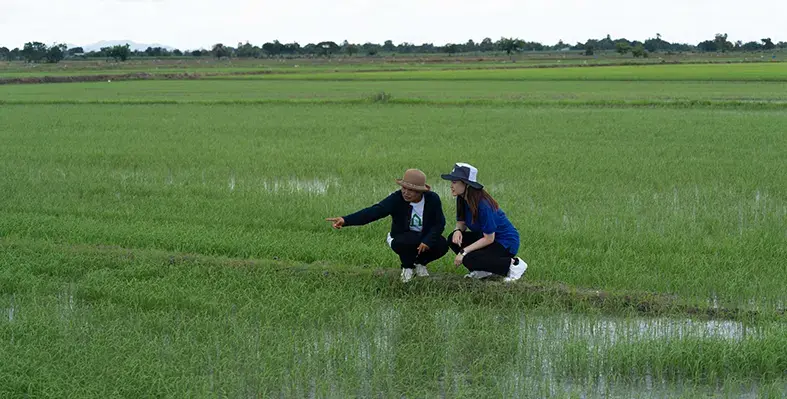Aiming to reduce GHG emissions in the rice industry, leading Asian retailer, DFI Retail Group has launched a low-carbon rice cultivation pilot programme in 2024 in Thailand
DFI seeks to promote the adoption of sustainable agriculture practices and enhance environmental awareness among its supply chains. This innovative programme successfully produced 110,000kg of certified low-carbon rice in 2024, achieving a minimum 30% reduction in GHG emissions on the rice fields compared to conventional cultivation methods.
Rice constitutes one of DFI's top Scope 3 product categories, accounting for approximately 6% of total Scope 3 emissions based on 2023 data. Traditional rice farming involves flooding fields for extended periods, which creates anaerobic conditions in the soil. This lack of oxygen allows microbes to release methane into the atmosphere, significantly impacting climate change.
In response, DFI collaborated with agricultural experts, the Thai government, and researchers to develop a low-carbon rice cultivation programme. The pilot programme partnered with 30 local farmers to implement sustainable farming techniques. These include:
- Alternate Wetting and Drying (AWD): The programme uses an irrigation technique called AWD, reducing flooding to about 10 days. This approach not only conserves water, but also reduces methane emissions while maintaining production yields.
- Straw burning prohibition: Farmers were provided support to eliminate open-field burning of rice straw, significantly reducing carbon dioxide emissions and air pollution.
- Soil and fertiliser management: Soil quality and fertiliser application were closely monitored, with guidance from agricultural experts. Soil samples were also analysed to optimise nutrient use and minimise nitrous oxide emissions.
"Beyond value and quality, we are committed to sustainability. This programme exemplifies our dedication to pursuing sustainable goals," said group chief Legal, Governance and Corporate Affairs officer, Erica Chan. "We wish to influence the industry, our stakeholders across the value chain to take collective action towards a sustainable future."




